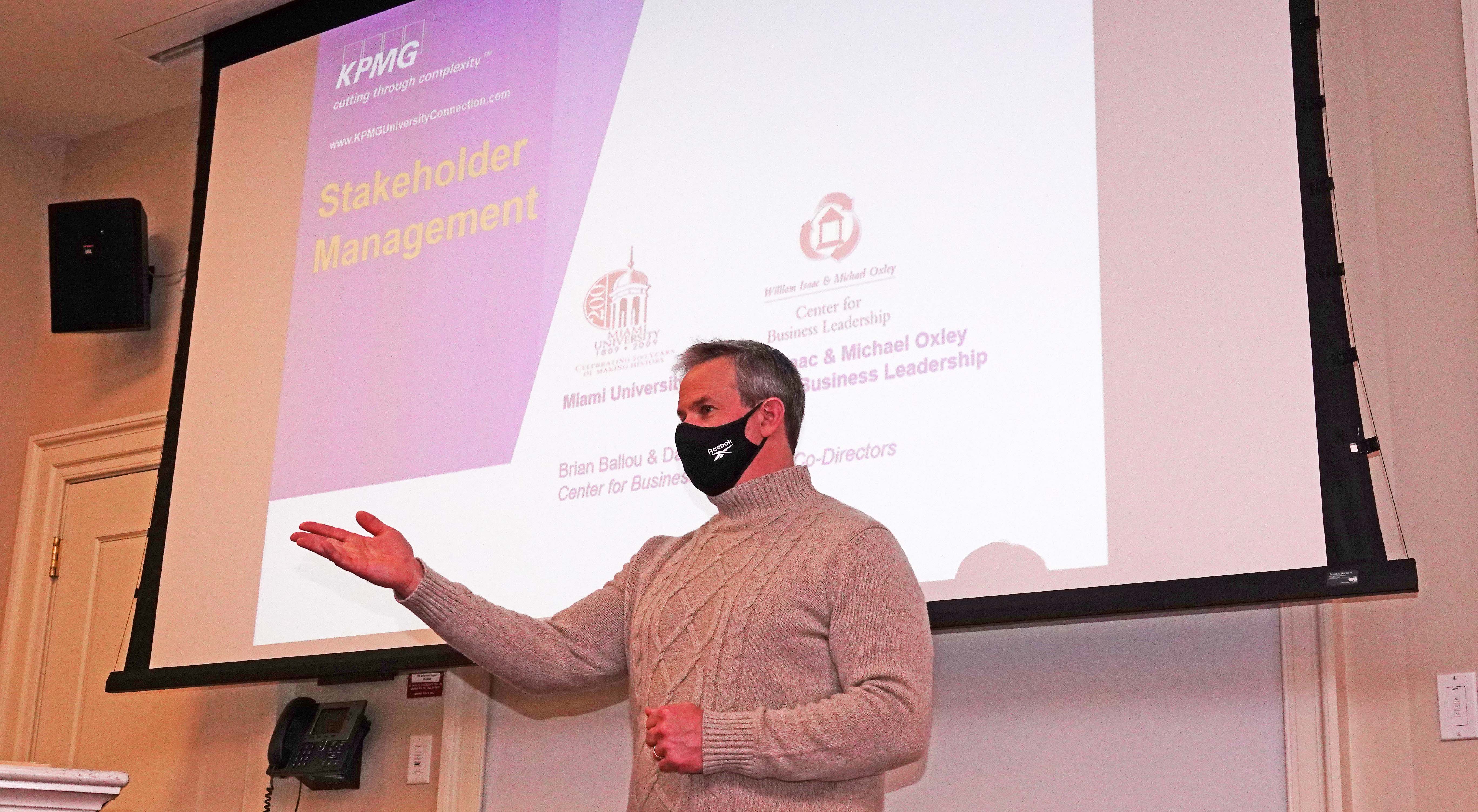KPMG partnership helps faculty innovate accountancy curriculum


One thing that the Farmer School hears from recruiters is that the students they hire upon graduation from Miami are ready to work day one. Part of the reason that’s true is that the school’s seven departments work to make sure students are taught relevant and current information about what will they will be expected to know in the real world.
In the case of the Department of Accountancy, a partnership with Big Four accounting firm KPMG is helping to ensure that the curriculum taught in accounting classes more closely matches the skills and knowledge that graduates will need in business. “It's transitioning our curriculum from a curriculum that focuses primarily on transferring technical accounting knowledge to one that still focuses on that, but also develops other skills and abilities, primarily relating to unstructured problem solving, critical thinking and creativity, and data and analytics,” department chair Andrew Reffett explained.
The idea of having an innovative curriculum isn’t new, but the close support of employees of a major accounting firm is innovative in itself. Reffett said that Farmer School alumni Matt Kramer, KPMG national sector leader, Patti Basti, managing partner of the KPMG Cincinnati office, and university talent acquisition senior associate Kelsey Green, came to him a few years ago and asked what they could do to help the department. “We've had a KPMG Support Fund and they came to me and said, ‘We want to utilize that fund more effectively,’” Reffett said. “We talked about our focus on innovation, and they said ‘Let's set up a curriculum innovation fund.’”
“We as a firm are making investments not just in people, but also methodology and technology and things that we're doing to do our audits differently. So what a perfect space to jump into at Miami,” Kramer said.
“KPMG has really been embracing innovation in the services that we deliver. So finding that common objective with the university around curriculum innovation, it seemed to fit really well together with investments that we've been making and ways that we can take our funds and make an impact for the university,” Basti remarked.
The department used the fund to establish and award curriculum grants last summer that will help faculty bring more to the classroom experience. “Professors draw up their proposals and submit those to the curriculum innovation committee and explain what they're interested in doing, how they're interested to build the curriculum for the classroom,” Basti explained. “Those professors chosen then work with KPMG subject matter professionals to really build in some new concepts of things that are going to be important or currently are important in the business world, and therefore going to be important for the students when they're out in the business world.”
“The primary approach to doing that has been to add projects and cases to existing courses,” Reffett said. “Our new data-driven decision making (3DM) framework is basically the scientific method applied to business settings.”
Two of the professors who received grants, Dan Heitger and Eric Marinich, used the funding to closer tie their respective classes’ curriculum. “We created a data analytics project that transcends those two courses. So students will do something with it in Eric’s class, and then I'll pick up where they left off and extend it in my class. You don't often get that sort of integration across courses,” Heitger explained.
“It's not the actual tools that they need to be extremely familiar with. It's the critical thinking skills that's the most important,” Kramer noted. “We use tools today like Altryx and Tableau and all these things that may be gone in 10 years.“
“We recognize that students really only have so much exposure to our field through their curriculum and by providing some more true life, real examples from our professionals and from their experiences, I think only furthers the interest in the career path, but also helps them understand what they're really getting themselves into before they jump into internships and full-time careers with us or with any firm,” Green explained.
“We've committed to funding the curriculum grants for a period of three years, but we hope to extend that further based on the success of the program,” Basti said. “We really appreciate the partnership with Andrew’s team of professors and FSB. It's really good to get to work closely with them on things like this.”
“I think it's fantastic because it's the best of both worlds for me. KPMG provides financial resources, but also a gut check, an external validation for the topics and the approaches that we take,” Heitger noted.

